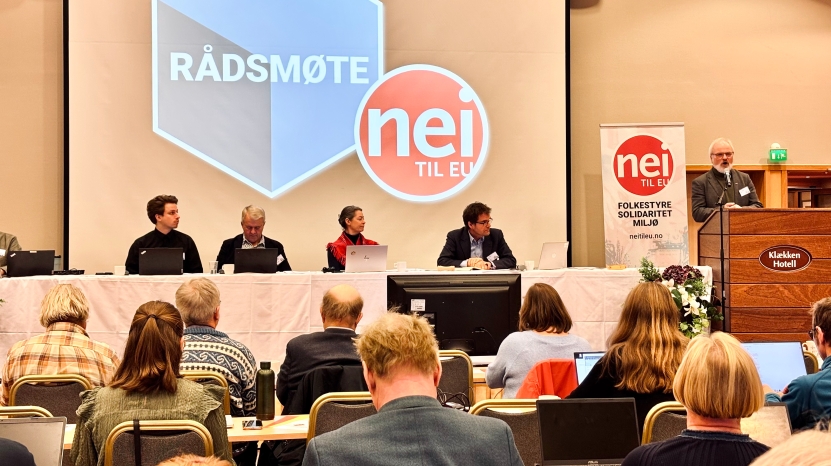
En økt EU-debatt gir oss mulighet til å fronte vårt syn
Nei til EU er samla til rådsmøte på Klekken hotell. Rådsmøtet er det høyeste organet mellom landsmøtene og samler representanter fra alle fylkeslag og direktevalgte representanter.
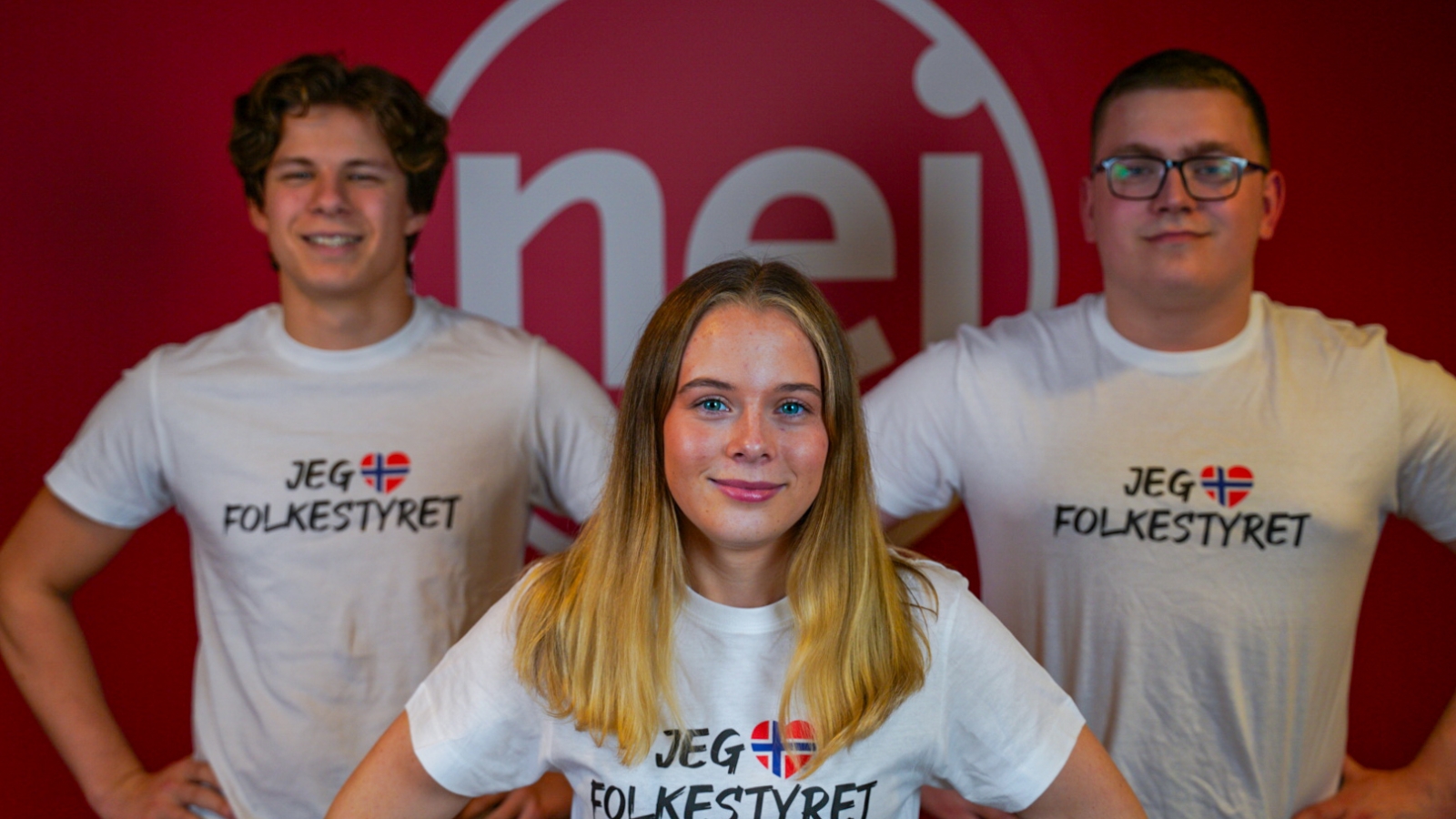
If Norway becomes a member of the EU, we accept that the union’s laws take precedence over the Constitution and all other Norwegian laws, without the right of veto (also called the right of reservation) that exists in the EEA agreement. The Storting (Our national parliament) will be bound by the decisions made by the EU, and we cannot adopt laws that conflict with EU laws.
The European Union, the EU, is fundamentally undemocratic. Lawmakers are only partly elected by the people. The EU’s decision-making processes are surrounded by secrecy. Citizens have little insight into what happens behind the closed doors of the EU headquarters in Brussels, Belgium.
In the EU, most laws must be adopted by both the Council of Ministers and the European Parliament. The Council of Ministers is not an elected body, but consists of one minister from each member state. Only the European Commission can propose new laws. Neither the Council nor the Commission can be held accountable or removed by voters in the EU.
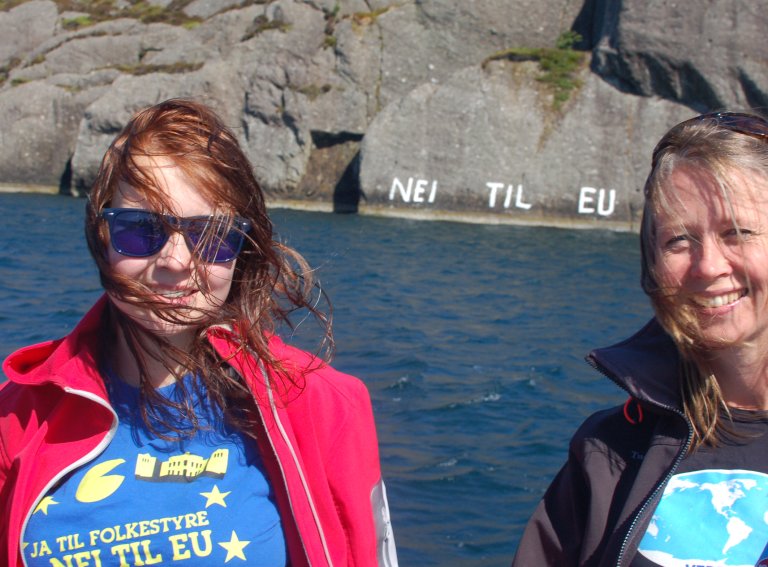
Many feel that the distance to the politicians is so big that there is no point in getting involved. Fewer people vote in elections for the European Parliament than in national elections. In the 2024 European Parliament election, only half voted (50.7 percent).
One of the most important means of influencing EU policy is lobbying. There are about 30,000 active lobbyists in Brussels. Most are paid by large corporations, while, for example, consumer and environmental organizations cannot afford to hire as many lobbyists. Often it is the resourceful business interests that shape new EU legislation.
One of the strengths of Norwegian democracy is participation from voluntary organizations and activist groups. Whether you live in Veitvet or Vågå, it is harder to get your message through to EU politicians. It is further to Brussels than to Oslo.
The EU has taken over authority from the member states in areas such as monetary policy, trade, climate, and food labeling. The solutions that suit the majority in the EU must apply everywhere, regardless of differences in culture, language, nature, and economic foundations. In this way, power and influence is moved further away from the people who are affected by the decisions.
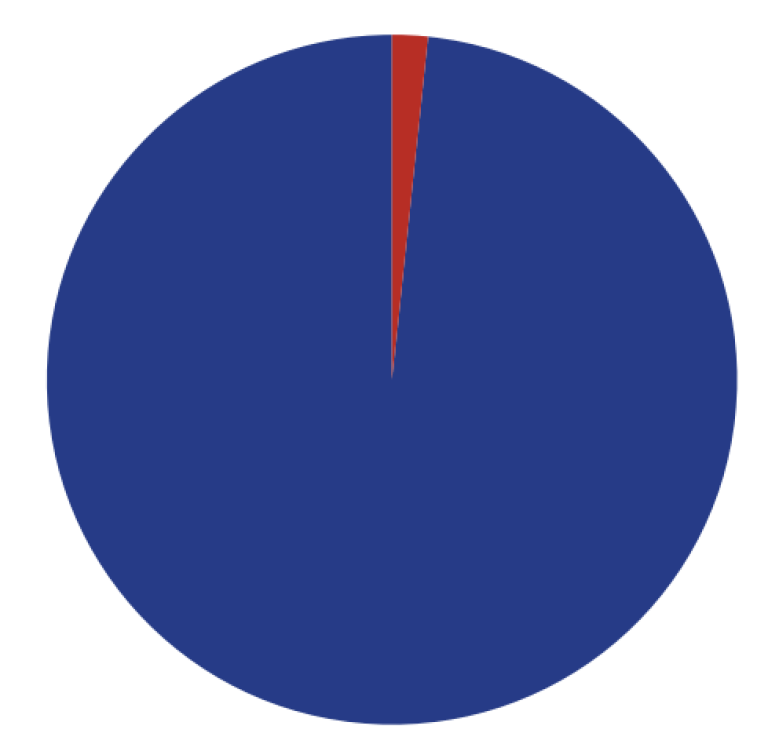
The European Council (EU Summits)
• Determines the main political direction.
• Consists of heads of state and government, as well as the President of the European Commission and the High Representative for Foreign Affairs.
• Chaired by its own president (the EU President) and meets in Brussels.
Council of the EU
• Shares legislative power in the EU with the Parliament.
• Energy ministers meet to discuss energy policy, foreign ministers meet to discuss foreign policy, etc.
• Sets the framework for the EU budget and other decisions binding on member states.
• Meetings are chaired by the rotating presidency, which changes every six months between member states.
The European Parliament
• The only directly elected body in the EU.
• Cannot propose legislation.
• Normally adopts laws together with the Council of the EU.
• Based in Brussels and Strasbourg.
The European Commission
• The executive power. Proposes new laws (directives and regulations) and drafts budgets and action programs.
• Ensures that member states implement EU laws and decisions.
• Appointed by the European Council and approved by the European Parliament.
• Based in Brussels.
In addition: the European Court of Justice in Luxembourg, the European Central Bank in Frankfurt, and over 30 agencies such as the energy agency ACER in Ljubljana.
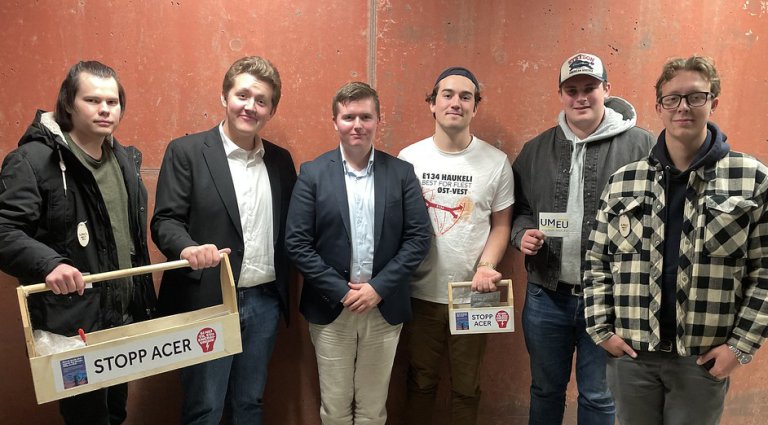
The European Economic Area (EEA) introduces the EU’s rules for the internal market in Norway, Iceland, and Liechtenstein. At the same time, Norway can participate in the EU’s expert committees that prepare new legislation.
Around 15,000 EU rules have been incorporated into the EEA Agreement. This weakens our economic and political freedom of action. The EEA means less safe food, more bureaucracy, social dumping in the labor market, and a less independent energy and environmental policy. The authority ESA in Brussels monitors that Norway complies with all the rules.
The EEA Agreement does not include the EU customs union, agricultural policy, fisheries management, the monetary union with the common currency euro, or foreign and security policy. We can say no to adopting new EU legislation into the EEA Agreement (the right of veto).
Before the EEA Agreement, Norway sold goods to the EU under a trade agreement that granted duty-free access for all industrial products. If Norway terminates the EEA, this agreement would apply again.
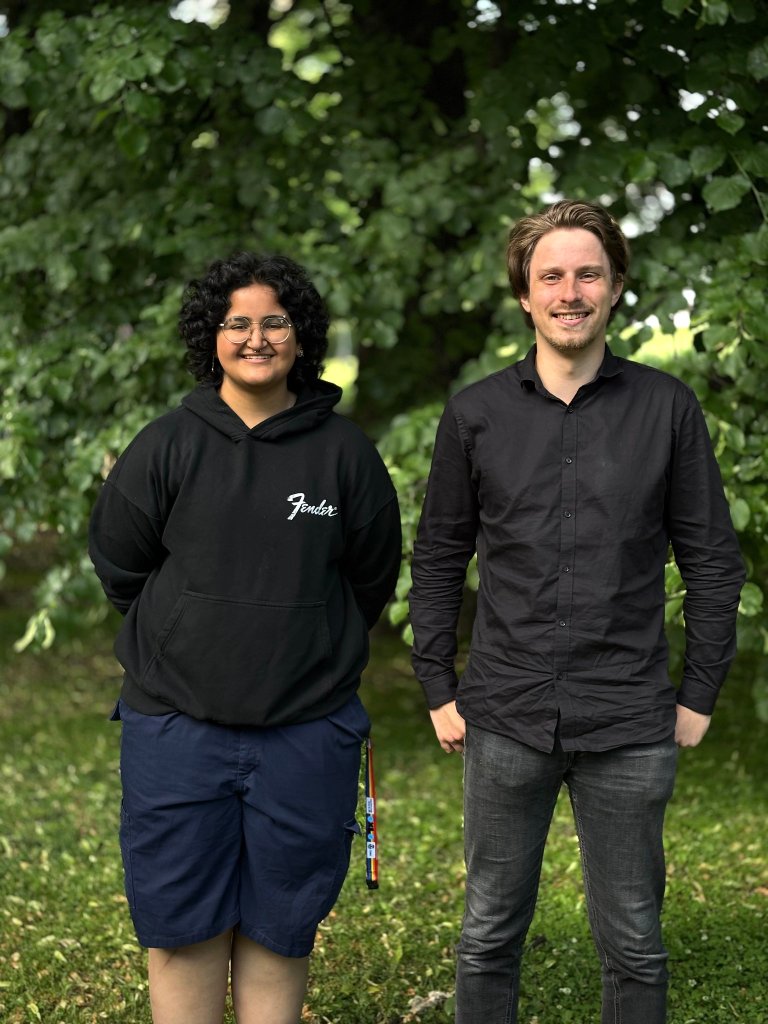
For several years, Norway has ranked at the very top of the Human Development Index from the UN Development Programme (UNDP). The ranking emphasizes factors such as welfare, health, gender equality, and employment. Together with Iceland and Switzerland, which are also outside the EU, Norway has been identified as the country in the world with the best living conditions.
When it comes to economic growth, the EU has stagnated compared to competing economic powers such as the United States and China. While Europe’s GDP in 2012 was higher than that of the United States, a decade later the continent had been surpassed by the U.S. The EU’s share of the global economy is shrinking year by year.
EU membership would mean that Norway would have to contribute many billions of kroner to the EU budget. Sweden paid a net contribution of 19 billion kroner to the EU in 2023, and Denmark paid almost 15 billion.
The EU has a common currency (the euro) and is a monetary union. This places restrictions on member states’ budget policies. Interest rates are not set nationally, but by the European Central Bank in Frankfurt.
Not all countries benefit from the same monetary policy at all times. Regardless of whether a country is experiencing a boom or a recession, there is only one interest rate in the EU’s monetary union. It can be compared to placing houses from Athens to Kiruna, but with only one thermostat—and it is located in Frankfurt. The result is often that the houses in Kiruna are too cold, and those in Athens are too hot. The temperature is only comfortable in Frankfurt.
The Norwegian economy is different from most EU countries in important ways. While Norway sells energy, the EU is a major importer. The same applies to trade in fish and seafood. Norway has a budget surplus and net national wealth. The EU has deficits and debt. Therefore, it often makes sense for Norway to pursue a different economic policy than the EU.
Norway has no difficulties selling goods and services to the EU without being a member. We are one of the EU’s largest trading partners. Norway sells products that both businesses and consumers in the EU need, while at the same time being a strong market for many EU companies. For example, the EU’s own production of seafood (fishing and aquaculture) covers only 40 percent of demand. Therefore, the EU needs to import seafood from Norway—both as raw materials and to ensure that EU citizens have fish on their dinner tables.
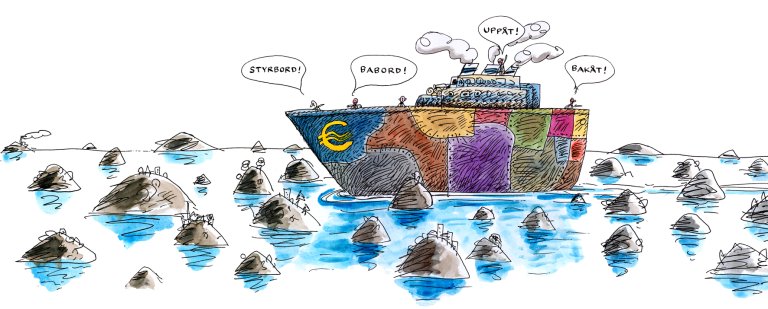
Norway has higher employment than what we see in the EU. Youth unemployment (under 25 years) in the EU countries Sweden, Spain, and Finland is over 20 percent. For the EU on average, youth unemployment is 14.8 percent (April 2025). In Norway, it is 13.1 percent. Overall unemployment in the euro countries (that is, EU countries using the euro) is nearly 50 percent higher than in Norway.
The free movement of labor, combined with large wage differences between EU countries, has paved the way for the exploitation of workers who take jobs in other countries. The result is temporary positions and more social dumping, meaning unsustainable wage and working conditions.
Figures for April 2025 (source: Eurostat)
EU:
Norway:
Figures for 2024 (source: Eurostat)
We live today in turbulent times, in a world marked by injustice. The war in Ukraine and U.S. foreign policy have placed Europe in a difficult situation, and unjust global power structures weigh heavily on countries in the Global South.
The EU does not hold the solutions to these problems. Norway has the opportunity to pursue a better policy for international security and solidarity outside the EU.
U.S. foreign policy under Donald Trump has cast doubt on the country’s loyalty to its European allies. In this situation, some have argued that the EU should and could become an alternative to NATO, and that Norway must therefore join.
However, this is far from realistic. Within the EU there are too many divisions to build a security alliance quickly enough. That is why new initiatives have been launched outside the EU, partly as a result of the war in Ukraine. Norway is an active participant here. Norway has important allies both inside and outside the EU.
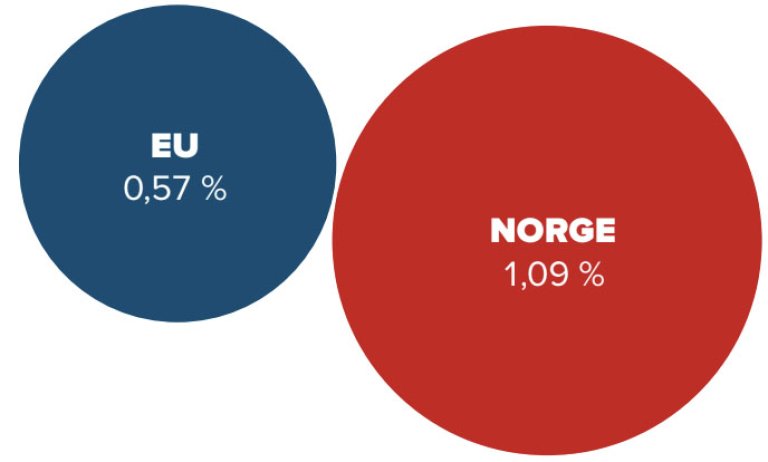
Unfair trade agreements create large global economic inequalities. In trade policy, the EU seeks to become a power that can rival the U.S. and China. The result has been a series of trade agreements with countries in the Global South where the main aim has been to safeguard EU interests. Since these countries have weaker economic conditions than the EU, the agreements have had negative consequences for them.
At the same time, the EU closes its borders to refugees. The EU’s border control agency, Frontex, has been criticized for human rights violations when people fleeing war and persecution are denied the right to have their asylum claims heard. Several thousand people have drowned in the Mediterranean in attempts to reach Europe.
Norway contribute against such developments and be a driving force in the UN. Norway is already an important contributor in development aid. While the EU spends only a little over half a percent of its gross national income (GNI) on aid, Norway spends over one percent. Norway can pursue a more solidarity-based policy outside the EU.
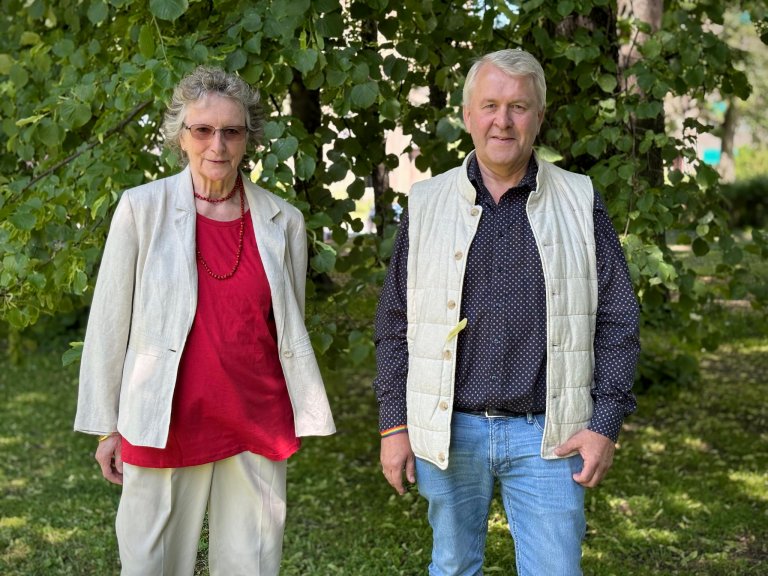
The climate and nature crisis is among the most serious challenges the world faces today. The world’s countries are falling behind on the goal of limiting global warming to 1.5 degrees, as set out in the Paris Agreement of 2015. At the same time, Earth’s ecosystems are exposed to extensive environmental destruction, which threatens biodiversity.
International cooperation is necessary to solve these problems, and the world is larger than the EU. The climate and nature crisis requires action on global arenas. Norway can play an important role in this work as an independent voice outside the EU.
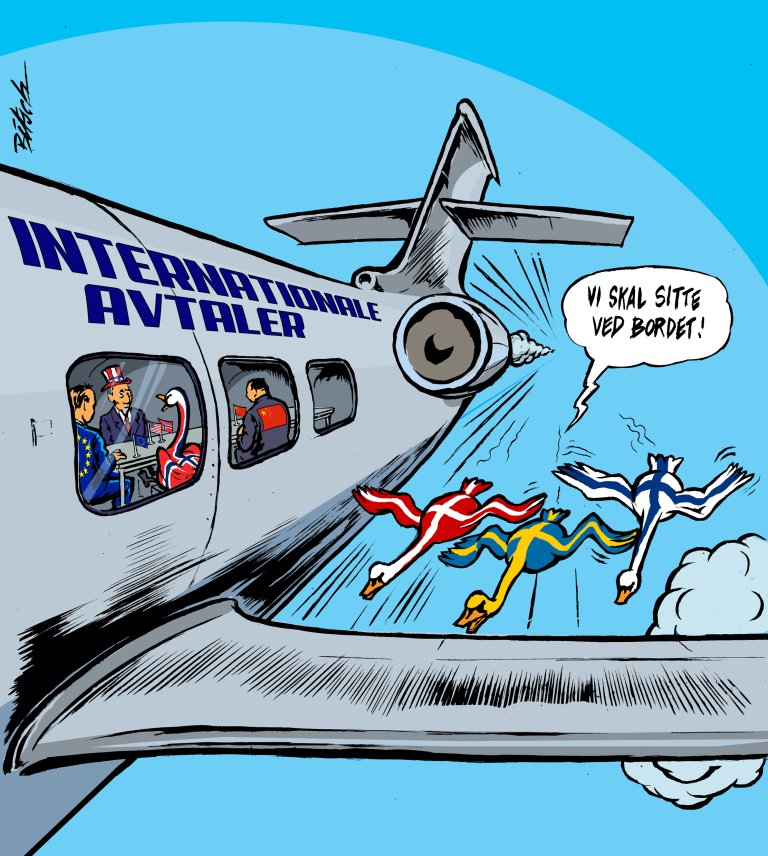
The EU’s climate and environmental policy suffers from several problems. When the EU has a common policy, it means that countries wishing to pursue more ambitious policies lose their voice in the UN’s global climate cooperation.
Like Norway, the EU aims to more than halve climate emissions by 2030, but the follow-up of these targets is not going as planned. Member states are struggling to meet pollution targets for 2030. Several climate and environmental organizations have taken the EU to court, arguing that the policy is insufficient.
EU policy is rooted in market-economic principles. This limits opportunities in climate and environmental policy. In the EU, measures must not, for example, be an obstacle to the free movement of goods. This makes it difficult for a country to take the lead with stricter environmental standards. Climate policy must also not come at the expense of economic growth. This makes it harder to pursue sustainable and environmentally friendly agricultural and fisheries policies—something Norway can do today outside the EU.
The EU’s climate policy has largely relied on the trading of emission allowances (quotas), but this has proven to be ineffective as the union simultaneously takes business interests into account.
Norway, for example, has come much further than the EU in reducing emissions from road transport. The EU lags far behind Norway in the share of electric vehicles, where Norway is the world leader.
The EU’s system is not suited to solving the climate problem. Norway has opportunities outside the EU to pursue a fair and effective climate policy.
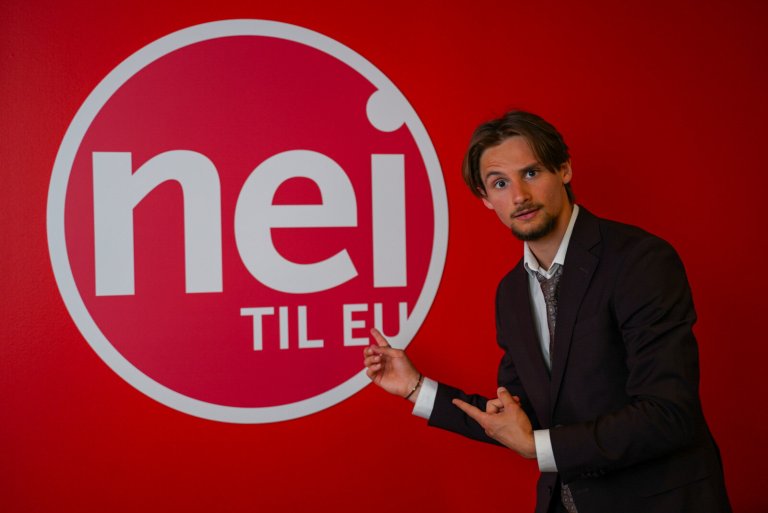
One point for each correct answer
1. What share of representatives in the European Parliament would Norway have received if it were an EU member?
2. Can the European Parliament propose new laws?
3. What is the euro?
4. Denmark has opted out of adopting the euro. Could Norway do the same if we became an EU member?
5. What is ACER?
6. What is the capital of the EU?
7. What is Frontex?
8. The Norwegian people have said no to EU membership in two referendums. Do you remember the years of these referendums?
9. Are the United Kingdom and Switzerland EU members?
10. Is Switzerland part of the EEA?
You can find the answers on the penultimate page.
Don't look at the correct answers until you have given your own answers to the questions!
1. About 2 percent.
2. No. Only the European Commission can formally do this.
3. The EU’s common currency, part of the EU’s monetary union, which places limits on national economic policy.
4. No. If Norway were to join the EU, the Norwegian krone would have to be replaced by the euro.
5. The EU’s energy agency, headquartered in Ljubljana, Slovenia.
6. Brussels, Belgium.
7. The EU’s border control authority. Frontex has been criticized for human rights violations.
8. 1972 and 1994.
9. No.
10. No.
0–4 points: Hmm. We suggest you read this EU explainer from top to bottom one more time, then come back strong in the next round.
5–8 points: Good! You’re unlikely to fall for simple “yes” claims like “we must join to have influence,” because you’ve understood that Norway’s voice in the EU would be very small.
9–10 points: Medal! Fireworks! But remember: just to be safe, check www.neitileu.no for updated information.

Nei til EU er samla til rådsmøte på Klekken hotell. Rådsmøtet er det høyeste organet mellom landsmøtene og samler representanter fra alle fylkeslag og direktevalgte representanter.
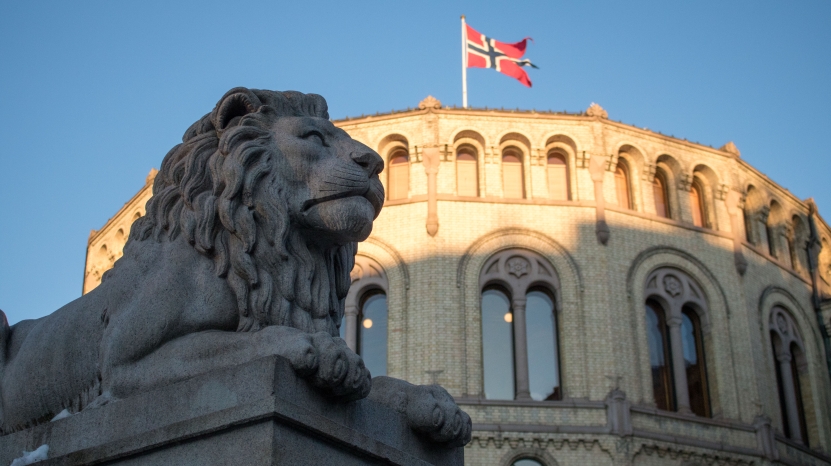
Norway’s relationship to the EU will in particular be controversial on matters related to tariffs, labour rights and the electricity market.
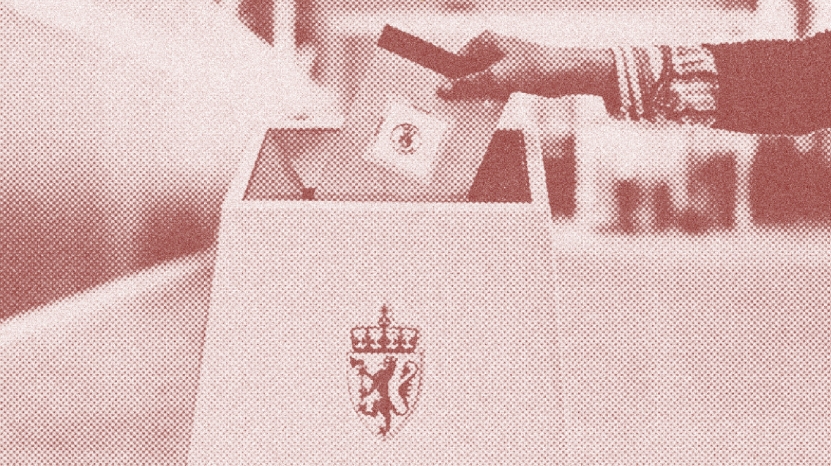
The Norwegian parliament has a majority opposed to EU membership after the recent election.